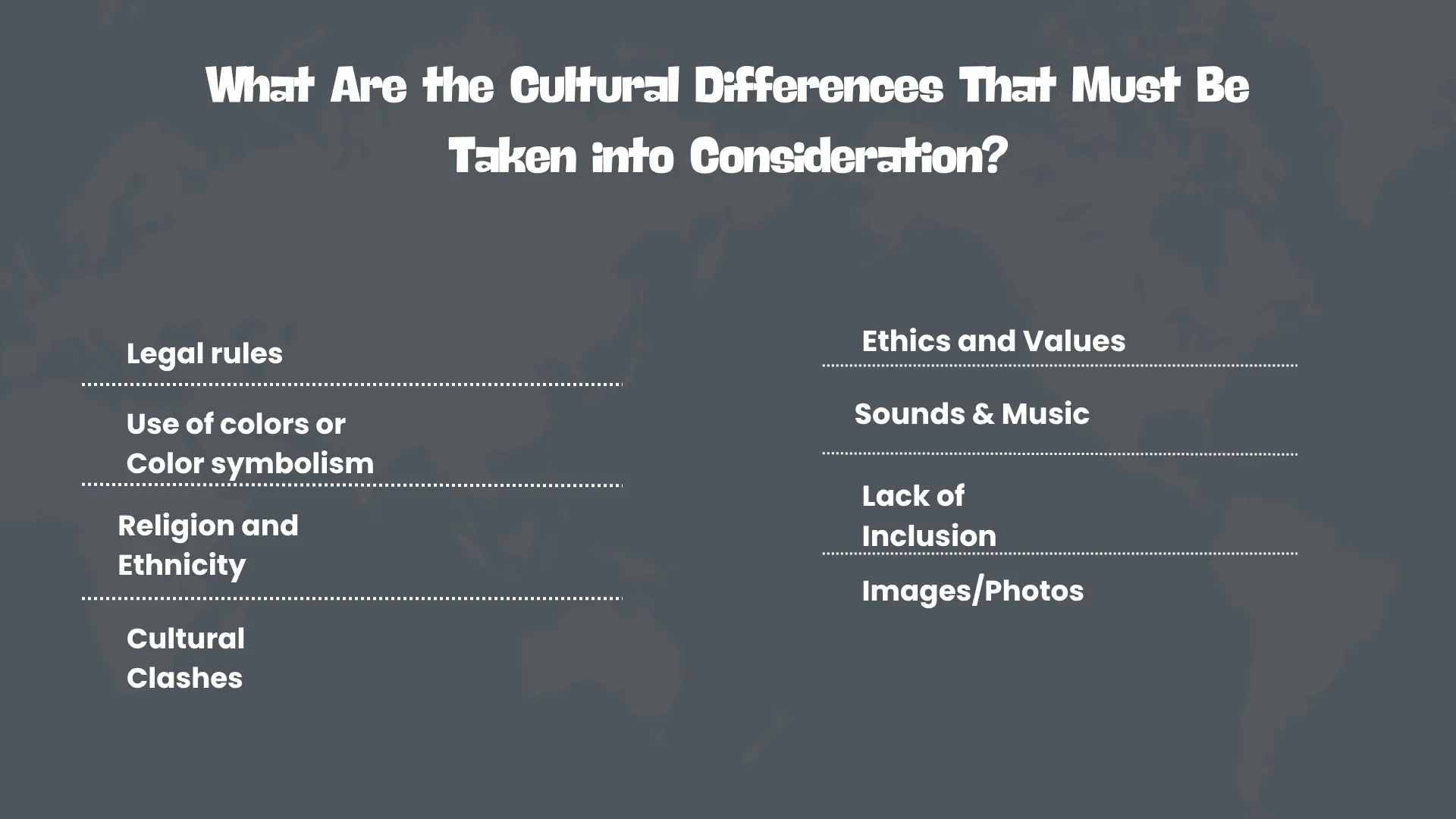Cultural Assessment
Every country has its own languages, customs, traditions, beliefs and rules of conduct. The norms in one country may differ greatly from another. When localizing for a certain region or country, you should learn more about the targeted audience & be aware of cultural differences before you take the localization decision to avoid market acceptance challenges.
What Is Cultural Assessment?
Cultural Assessment is more than an evaluation of a product or a service. It’s a very deep evaluation process of the product that the global company is launching to make sure that the product is local culture friendly. Companies that have a globalization strategy need to explore the culture of the audience before landing there. The objective of this exploration is to understand the culture of your audience so you can be aware of their needs, cultural sensitivities or even if your product suits them and will make a success or not.







